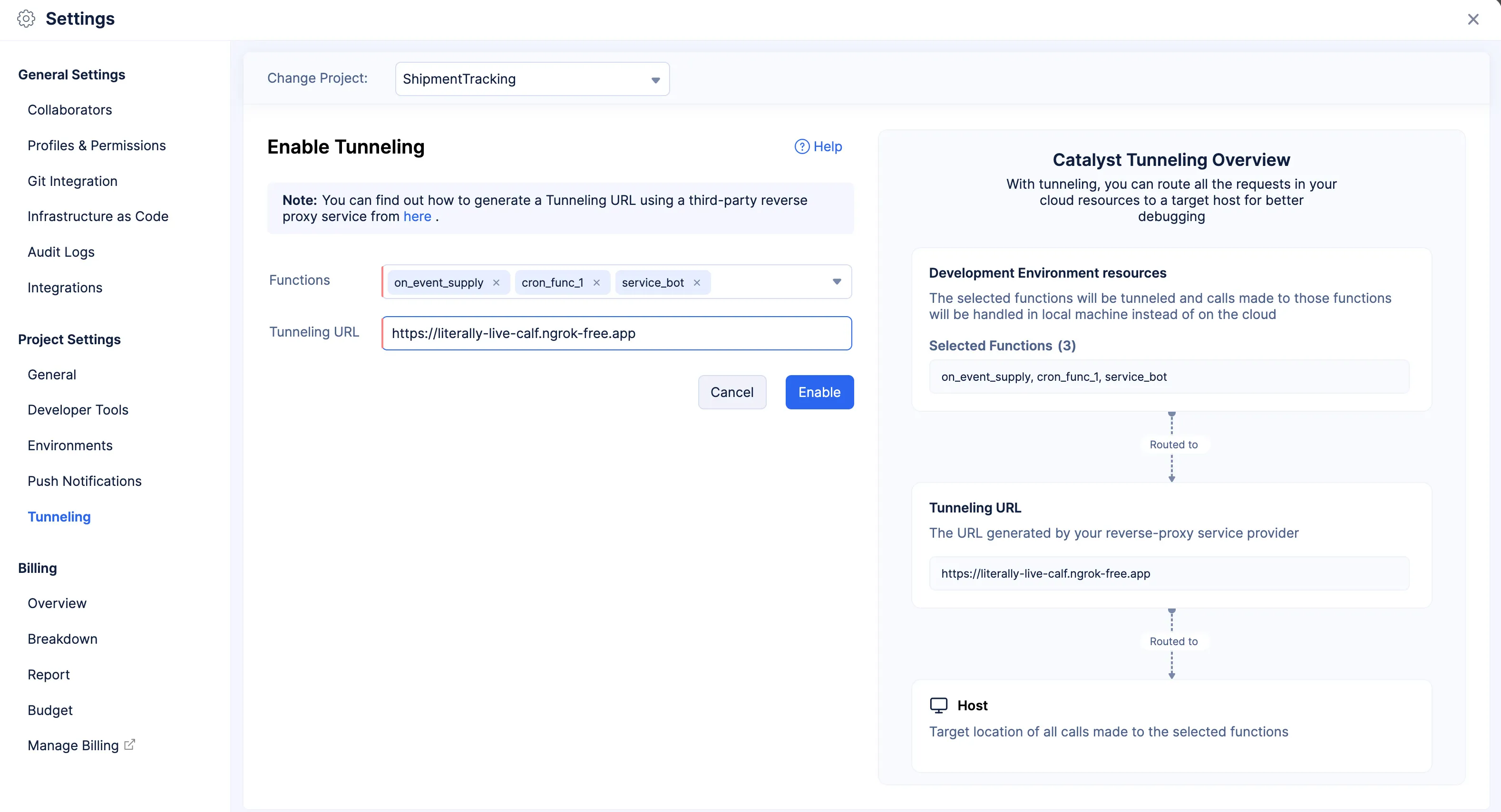Catalyst Tunneling
Introduction
Catalyst Tunneling enables you to locally debug non-HTTPS Catalyst Serverless functions (Event functions and Cron functions), as well as the Integration functions. Local debugging is a crucial part of application engineering. While there are clear means and no restrictions on debugging Basic I/O and Advanced I/O functions in Catalyst, debugging non-HTTPS backendfunctions like Event functions Cron functions, or the HTTPS backend functions like the Integration functions, can prove to be difficult or restrictive.
Cron, Event, and Integration functions are only executed upon automatic, backend invocation. They are not directly triggered by an endpoint URL like Advanced and Basic I/O functions. Instead, these functions are executed due to a run-time event, or at a particular schedhule or a time interval as a backend process. Debugging these functions in the development environment without an exact trigger is inconclusive. Tunneling is a Catalyst feature that solves this issue.
Without Catalyst Tunneling to debug Integration and non-HTTPS functions in the development environment, you would launch a functions shell in the Catalyst CLI and test the functions by providing sample inputs. For Event functions alone, you could additionally generate a sample payload as input and check the output. However, these methods do not allow you to examine the code logic or provide you with enough debugging assistance to test the function.
Tunneling works on the principle of reverse-proxying Catalyst functions from getting executed in the cloud to executing on a local web server. This enables you to debug the functions in your local IDE. You can use a reverse proxy-provider of your choice, and provide a Tunneling URL for these functions to be debugged. You then trigger the URL and, using Catalyst Tunneling, you can route calls made to these functions to your local system, thereby debugging them easily.
With Catalyst Tunneling in combination with a third-party reverse proxy service of your choice, you can effectively debug functions by using the Catalyst console, Catalyst CLI and any IDE of your choice.
Last Updated 2025-08-28 12:01:44 +0530 IST
Yes
No
Send your feedback to us
